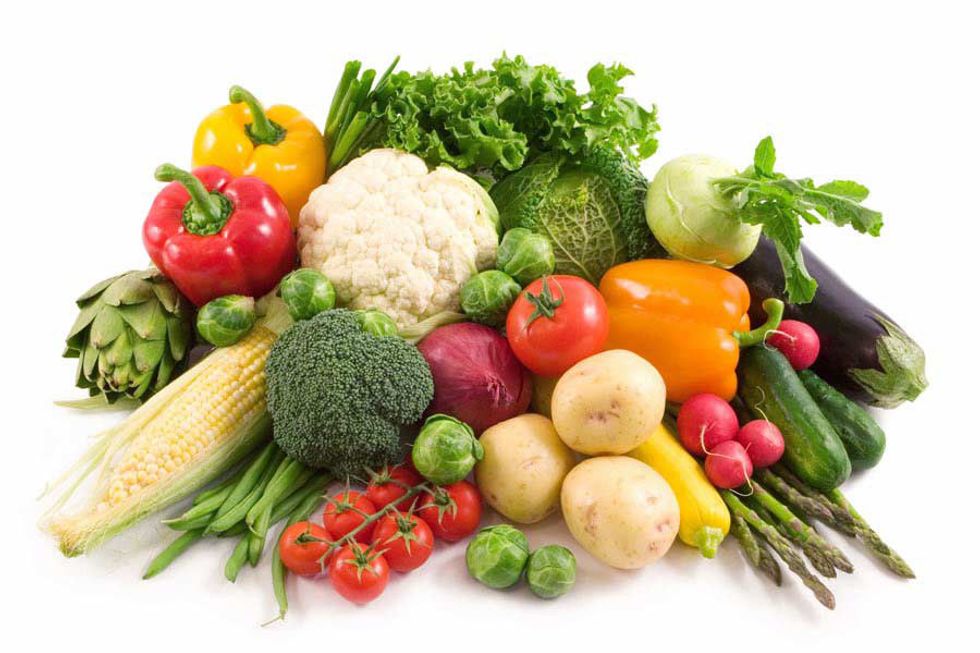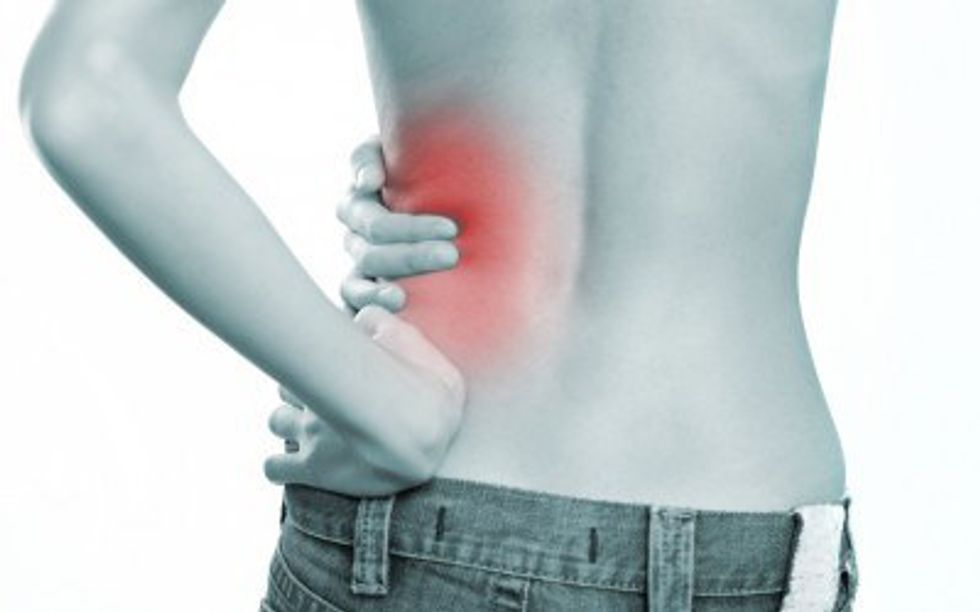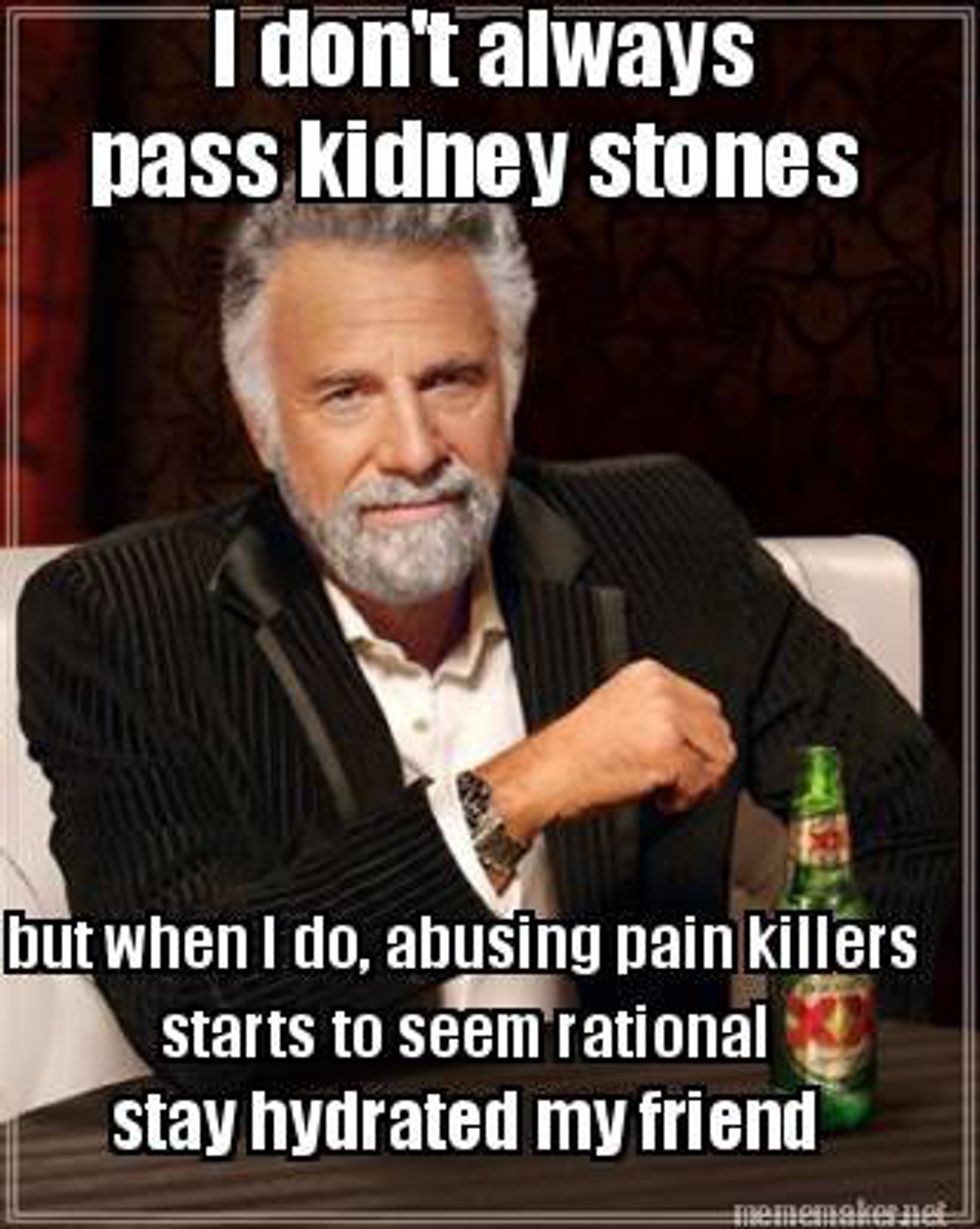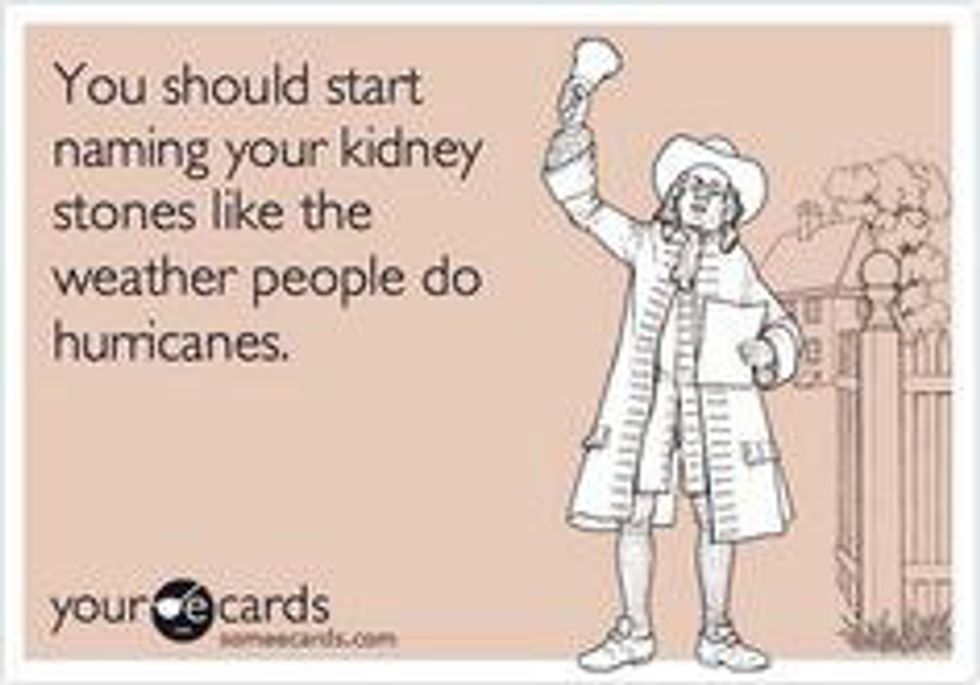What is a kidney stone, you may ask? According to the National Kidney Foundation, kidney stones are hard objects that are developed in the urine that collect other elements to become larger, such as calcium, oxalate, urate, cystine, xanthine, and phosphate. In the summer of 2015, I found out that I have chronic kidney stones, which means that my body does not produce the necessary enzyme to break down stones. I pass multiple stones each year, and there's no limit on how many. It varies depending on certain factors and whether those factors improve your health or not. There are certain things that should be done to decrease the likelyhood of developing future stones.
1. Modify Your Diet

This is one of the most important things that will need to be put into effect immediately. Most urologists recommend consuming red meats in moderation. For myself, I can only have red meats once a month, if that. Veggies and white meats, such as turkey, are the best options. Water is the best option for beverages. Consuming fluids help flush the stones out of your system when they begin moving, which can be hard when all you can focus on is the massive pain. Soda should be consumed in moderation as well, which can be difficult if you're used to drinking soda everyday. Sweet tea is also a bad idea because of all the sugar. Don't add salt to anything and try to resist foods that are high in sodium, such as ramen noodles. Salt is one of the worst things you can eat when you have chronic stones.
2. Learn to Breathe through the Pain

This is one of the hardest things to do because passing a kidney stone is comparably worse than giving birth. It took two weeks for me to pass a stone last summer, and I didn't have any pain meds until three days before the stone passed. Going through the pain without really good meds is tough. There will be vomit, crying, and
sleep deprivation because there will never be a comfortable position. The pain doesn't cease for long either. If it does, take advantage of that time to sleep. Sleep doesn't come easy during this kind of pain. When I was able to sleep, I had to make sure that people knew not to wake me up because that was one of my only chances to sleep. If the pain is constant for at least 12 hours, then you'll most likely pass out from all the combined factors.
3. You'll Only Take Pain Meds When It's Absolutely Necessary

To get really good pain medications, such as Percocet (Acetaminophen/Oxycodone), you have to have them prescribed by a urologist. These are the kinds of meds that are needed to get through kidney stone pain though. Your urologist will tell you to take them only when you know you really need them to reduce pain. You don't want to take them to keep yourself out of pain because these meds are highly addictive. Plus, you don't want to waste them either. Your pain meds are important and you'll only take them when the pain feels like it's murdering you. The light pains you'll learn to breathe through.

This is important because your body is going through something that can cause extreme damage to your health. When I passed my first stone last summer, I was unable to keep anything down because the pain was so great that I would vomit everything I attempted to ingest. This caused extreme dehydration and, ultimately, had me lying in a doctor's office for hours with an IV bag hooked up to my arm so that I could intake fluids. Exercise will keep your muscles strong and help you maintain body weight so that you remain healthy, especially when you pass stones frequently. Exercise also helps relieve stress, which is also a factor that causes stones to move.
5. Keep Going Even When You're in Immense Pain

When you have chronic stones, you have to learn to keep doing daily activities even when you feel like you're dying. It's hard at first, but you just learn to live with it. Take things one day at a time and hope that a stone doesn't pass when you're really swamped with important stuff that you have to get done. Implementing diet changes and exercise really help with this though. Reducing stress and taking
care of your body helps keep you out of pain for a while until a stone decides to move.


























